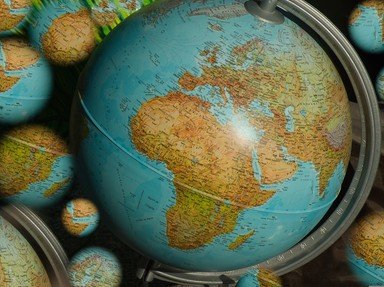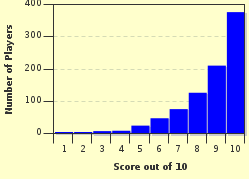Quiz Answer Key and Fun Facts
1. What is the longest river in Africa?
2. The longest-lasting and most influential civilization in African history (known for its still-impressive pyramids) provides the name for what modern-day nation?
3. What is the tallest mountain in Africa?
4. Which of these countries never had any colonies in Africa?
5. Running roughly along the Tropic of Cancer is a huge expanse of hot, dry land. What is the name of this desert?
6. Which of these large bodies of water does Africa NOT border?
7. Which of these is NOT a historic African city?
8. Part of northeastern Africa extends sharply eastward into the Arabian Sea to the south of Yemen and Saudi Arabia. What is this distinctively-shaped region commonly called?
9. One of the great continuing adventures in visiting Africa is to go on safari - a trip through the countryside to observe the striking land and its wildlife. Which of these animals would you be least likely to see on an African safari?
10. Finally, a question on African economics. Though much of Africa has been very poor in the modern era, some countries have had a good amount of success producing crucial products for the world. Which of these countries is NOT paired with its outstanding export(s)?
Source: Author
stuthehistoryguy
This quiz was reviewed by FunTrivia editor
NatalieW before going online.
Any errors found in FunTrivia content are routinely corrected through our feedback system.


